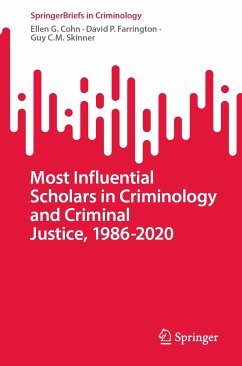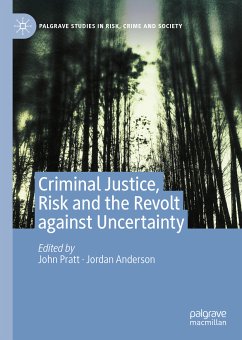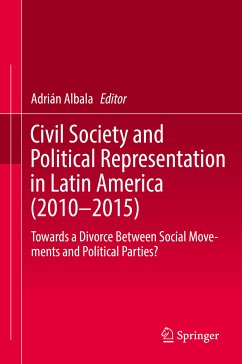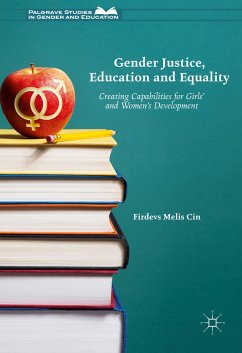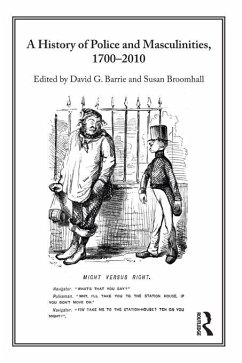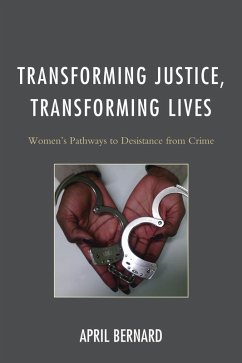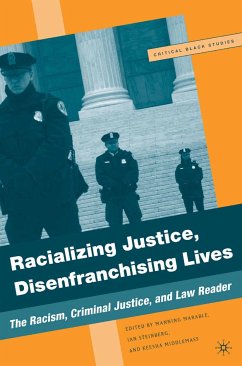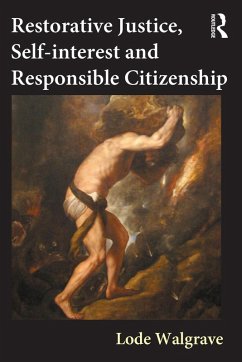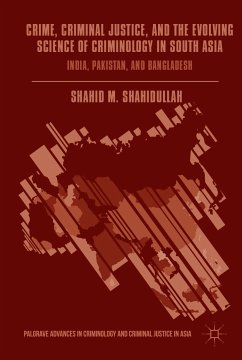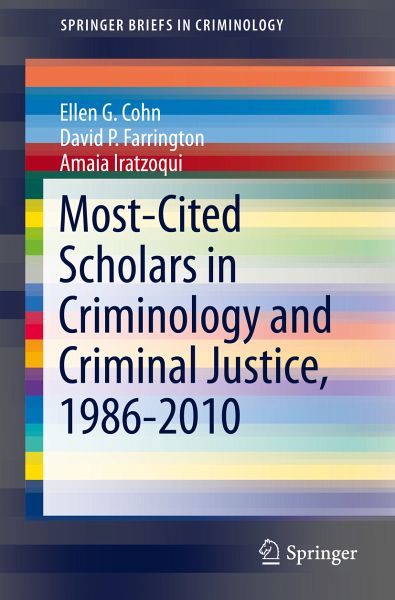
Most-Cited Scholars in Criminology and Criminal Justice, 1986-2010 (eBook, PDF)
Versandkostenfrei!
Sofort per Download lieferbar
40,95 €
inkl. MwSt.
Weitere Ausgaben:

PAYBACK Punkte
20 °P sammeln!
¿¿ ¿This brief examines the influence and prestige of scholars and works in the field of Criminology and Criminal Justice, as well as changes in influence and prestige over a period of 25 years, based on citation analysis. Methods of measuring scholarly influence can be highly controversial, but the authors of this work clearly outline their methodology, developed over years of experience working with this area of study. Through their expertise in Criminology and Criminal Justice, they are able to solve problems that affect or confound many traditional forms of citation analysis, such as ir...
¿¿ ¿This brief examines the influence and prestige of scholars and works in the field of Criminology and Criminal Justice, as well as changes in influence and prestige over a period of 25 years, based on citation analysis. Methods of measuring scholarly influence can be highly controversial, but the authors of this work clearly outline their methodology, developed over years of experience working with this area of study. Through their expertise in Criminology and Criminal Justice, they are able to solve problems that affect or confound many traditional forms of citation analysis, such as irregularly cited references or self-citations. It includes 25 years of data (1986 through 2010) on the most-cited scholars and works in major American and international Criminology and Criminal Justice journals, and provides an objective measure of influence and prestige. Through an analysis of the data, the authors also document the intellectual development of criminology and criminal justice as a field of study since 1986. They highlight the development of research trends and indicate areas for future research. This book is designed for use by scholars and academics in the fields of Criminology and Criminal Justice, and the methodology will be of interest to researchers in related disciplines, including Sociology and Social Psychology.
--
Cohn, Farrington, and Iratzoqui provide an invaluable service in unpacking the criminological enterprise. Using systematic citational analysis, they illuminate the core patterns of scholarly influence that have shaped the field's development. This volume is an essential resource for all those wishing to understand which scholars and writings have done most-within and across time periods-to affect thinking about crime and justice.
Francis T. Cullen Distinguished Research Professor University of Cincinnati - Citation analyses have becomeone of the most significant measures of scholarly influence. They are especially useful for revealing major trends over time regarding authors and the topics of interest to the wider field. Cohn, Farrington, and Iratzoqui's Most Cited Scholars in Criminology and Criminal Justice, 1986-2010 provides the most up-to-date, comprehensive, and longitudinal investigation of scholarly influence in criminology/criminal justice. This resource is a most interesting read, one that supplies not a mere counting of citations but clear ideas about where the field has been centered and where it is trending into the future.
Alex R. Piquero Ashbel Smith Professor of Criminology University of Texas at Dallas
--
Cohn, Farrington, and Iratzoqui provide an invaluable service in unpacking the criminological enterprise. Using systematic citational analysis, they illuminate the core patterns of scholarly influence that have shaped the field's development. This volume is an essential resource for all those wishing to understand which scholars and writings have done most-within and across time periods-to affect thinking about crime and justice.
Francis T. Cullen Distinguished Research Professor University of Cincinnati - Citation analyses have becomeone of the most significant measures of scholarly influence. They are especially useful for revealing major trends over time regarding authors and the topics of interest to the wider field. Cohn, Farrington, and Iratzoqui's Most Cited Scholars in Criminology and Criminal Justice, 1986-2010 provides the most up-to-date, comprehensive, and longitudinal investigation of scholarly influence in criminology/criminal justice. This resource is a most interesting read, one that supplies not a mere counting of citations but clear ideas about where the field has been centered and where it is trending into the future.
Alex R. Piquero Ashbel Smith Professor of Criminology University of Texas at Dallas
Dieser Download kann aus rechtlichen Gründen nur mit Rechnungsadresse in A, B, BG, CY, CZ, D, DK, EW, E, FIN, F, GR, HR, H, IRL, I, LT, L, LR, M, NL, PL, P, R, S, SLO, SK ausgeliefert werden.




